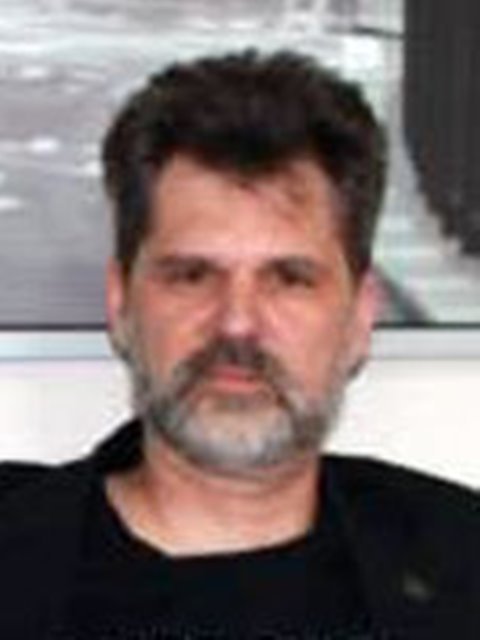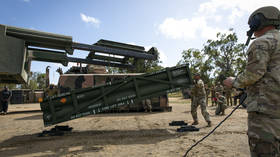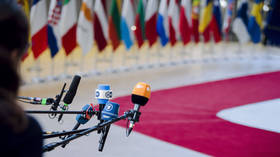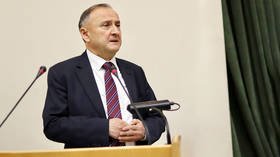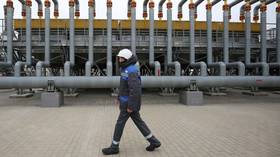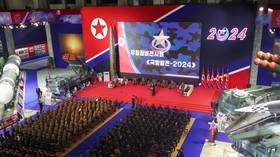Strange days ahead: Turkey's presidential elections 2014
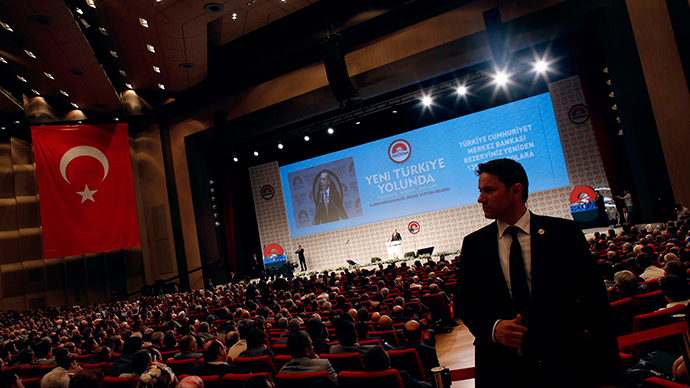
Ever since the Republic of Turkey introduced multi-party elections in 1946/50, the country has been hailed as a nation possessing a Muslim population yet also a functioning and vibrant democracy.
Even though the free flow of Turkish democracy has on several occasions been rudely interrupted by military coups (most recently on 12 September 1980), in the end "free and fair" elections have always managed to be organized and produce viable, or less viable in cases of unwieldy coalitions, governments ruling the country along civilian principles. Turkey has thus become a beacon of liberal democracy in the Muslim Middle East, well-known for its repressive political systems and oppressive regimes. The political philosopher Larry Siedentop pointed out as long ago as 2000, that before the middle of the 20th century "democracy was a word unknown to most of the non-Western world". Turkey was thus really a trailblazer in its region.
According to the Republic of Turkey's present Constitution (as amended in 2007), the "President of the Republic is the head of the State. In this capacity, he/she shall represent the Republic of Turkey and the unity of the Turkish Nation; he/she shall ensure the implementation of the Constitution and the regular and harmonious functioning of the organs of the State". In other words, the figure of the president is described as a primarily ceremonial function and traditionally, this figurehead was elected by the nation's parliament. Rumors have been running around Turkey for years now that the nation's current Prime Minister, the incredibly popular yet equally divisive Recep Tayyip Erdogan, would like to change the nation's parliamentary system to a presidential one, and that he would introduce changes to the Constitution to that effect.
Over the years, Erdogan has shown himself to be a hands-on leader, whose tendency to micro-manage even the most minute matters of state has earned him the sobriquet "authoritarian" in the hearts and minds of many of his domestic as well as international critics. And now we are less than a month away from the first round of the 2014 presidential elections, and three individuals have now presented their candidatures: the 41-year old Selahattin Demirtas, former co-leader of the pro-Kurdish Peace and Democracy Party, or BDP; the 71-year old Ekmeleddin Ihsanoglu, the former head of the Organization for Islamic Cooperation (OIC) and joint-candidate of the two major opposition parties – the CHP (or the Republican People’s Party) and the MHP (or the Nationalist Movement Party); and finally, Recep Tayyip Erdogan, the still acting prime minister and leader of the party in government, AKP (or Justice and Development Party).
The controversial choice
The Kurdish candidate Demirtas would normally not really stand a chance, given the fact that Kurds in the Republic of Turkey are but a minority of the population and the electorate. According to the CIA World Fact Book Kurds constitute 18% of Turkey's population, corresponding to 14 million individuals. Whereas Kurdish nationalists claim that the real number of Kurds living in Turkey is closer to 20 or even 25 million. The Kurdish writer and journalist Ayhan Bilgen, who stood for the HPD in Adana during the recent municipal elections, said that: "our campaign is for all circles exposed to discrimination, denial, and for those who have concerns over the polarization of Turkey ['s population]. That is why Demirtas is a name to which disappointed CHP voters will turn to".
This statement would appear to hold some truth, as the joint MHP-CHP candidate Ihsanoglu is a figure whose allegiance to Kemalist principles has been publicly questioned in the past weeks and who, as an erstwhile academic-turned-public figure as head of the Organization of Islamic Cooperation (between 2005 and 2013), does not really possess any kind of local political experience or even credibility in the Turkish context. As Secretary General of the OIC, the second largest inter-governmental organization after the United Nations, Ekmeleddin Ihsanoglu has over the past years, however, gained a lot experience on the international stage and interacted with many renowned statesmen and women worldwide. His prominence as a representative of Sunni Islam worries members of Turkey's very own Alawite community. In the course of his election campaign, Ihsanoglu stopped in the Anatolian city of Nessehir, where he paid his respects at the tomb of Haci Bektas Veli (this saintly figure is much-revered by Turkey's Alawite community). Not content with a mere visit, Ihsanoglu even proceeded to further woo Alawite voters, making a significant pronouncement on the 1993 tragedy.
On 2 July 1993, 35 people, mostly Alawite intellectuals and artists, in addition to two hotel employees were killed in the eastern Anatolian city of Sivas in a fire lit by Sunni extremists. This event has become one of Turkey's poignant episodes in the nation's recent history, as a massacre indicative of the extreme polarization between the Sunni Muslim majority and the Alawite minority in Turkey. Capitalizing on the 21st anniversary of the event, Ihsanoglu declared that the remains of the hotel should be turned into a museum, to serve as an example for Turkey's coming generations, as a reminder of the disastrous consequences of intolerance and bigotry. In doing so, Ihsanoglu clearly distinguished himself from Tayyip Erdogan, who is oftentimes accused of fomenting inter-communal tension and pursuing a policy of Sunnification.
Rather than fostering solidarity and understanding, the AKP government appears to devise new and different ways to antagonize certain sections of the population. With regard to Turkey's Alawite community, last year's groundbreaking ceremony for a third bridge across the Bosphorus could be interpreted as a deliberate provocation. On 29 May 2013 President Abdullah Gul announced that the new bridge will be called 'Yavuz Sultan Selim', after the 9th Ottoman sultan (1512-20). Selim’s reign was of great importance for the Ottoman Empire. The Sultan conquered the whole of the Arab Middle East during his short reign, securing Ottoman control over Islam’s holy cities of Mecca and Medina. Selim’s patronage of the last descendant of the Abbasid Caliphs eventually led to the Ottoman claim to Caliphate (successor to the Prophet and nominal head of the world of Islam). As a result, Selim’s reign transformed the Ottomans into the ultimate champions of Sunni Islam. Turkey’s Alawite community, consisting of an estimated 15 to 20 million, was outraged at the time. They mainly claim that Sultan Selim was responsible for the slaughter of numerous Alawite tribes living in what is now Turkey’s south-east area bordering on Iraq and Iran. In contrast to the AKP's antagonistic, or rather hostile, as some would argue, stance on Turkey's Alawite community, Ihsanoglu, as the joint CHP-MHP candidate, has made his position clear, furthering inter-communal tolerance and toleration if elected president.
Polarizing electorate
One could argue that the contest that is now being waged in Turkey is one that places the Turkish electorate in front of a stark choice. On the one hand, arguably Erdogan's presidency represents a future that would see Turkey becoming a more and more staunchly Sunni nation where believers steadfastly adhere to their faith as providing a moral compass and presenting the individual with an identity defined strictly in terms of holding on to the example offered by the Prophet Muhammad.
A possible indication of the shape of things to come was witnessed recently at the Ondokuz Mayıs University in Samsun. Apparently, the Dean of the University's Faculty of Medicine, Professor Haydar Sahinoglu added the expression “I swear to Allah” to the Hippocratic Oath during the oath ceremony performed by the university's medical students. It seems that this incident was nothing but the outcome of the actions of one individual, namely Professor Sahinoglu. But, the mere fact that such an intrusion of religious doctrine into medical practice was even possible would appear to reveal the extent to which the current government's extreme Sunni stance emboldens certain individuals to undertake actions that would have been deemed impossible a mere twenty years ago.
If the electorate were to choose Ihsanoglu, on the other hand, the future would seem to hold the promise of a more open Turkish society, a community where tolerance and toleration are the norm and minorities would arguably feel less disenfranchised. The ever-increasing polarization that has been dividing the Turkish public into a faction favoring Tayyip Erdogan and another one vehemently opposed to the man and his policies is now set to come to a head in the presidential elections scheduled for 10 and 24 August.
One thing seems certain though, if the AKP candidate were to carry the day Turkey's Constitution would receive another amendment. As indicated earlier, Erdogan seems bent on transforming Turkey's political system into presidential one. Whereas in previous decades, Turkey's President was nothing but a nominal "head of the State", symbolizing the "Republic of Turkey and the unity of the Turkish Nation", under “President Erdogan” the state's ship would be steered solely from Cankaya Palace and parliament (TBMM) demoted to the position of being a mere talking shop.
Instead the new Turkish Presidency would run the show and steer the state's ship into hitherto unsailed waters. Looking at the prospect from an historical perspective, one could reason that Tayyip Erdogan is actually trying to construct his own image as mirroring that of Sultan Abdülhamid II. After all, he was the Ottoman to introduce a Constitution and a Parliament into the local polity, only to abandon the project after two years (the First Constitutional Period, 1876-78) and turn himself into an autocratic ruler, a sultan whose every whim was law and whose policies seemed to favor the religion of Islam.
The statements, views and opinions expressed in this column are solely those of the author and do not necessarily represent those of RT.
The statements, views and opinions expressed in this column are solely those of the author and do not necessarily represent those of RT.
